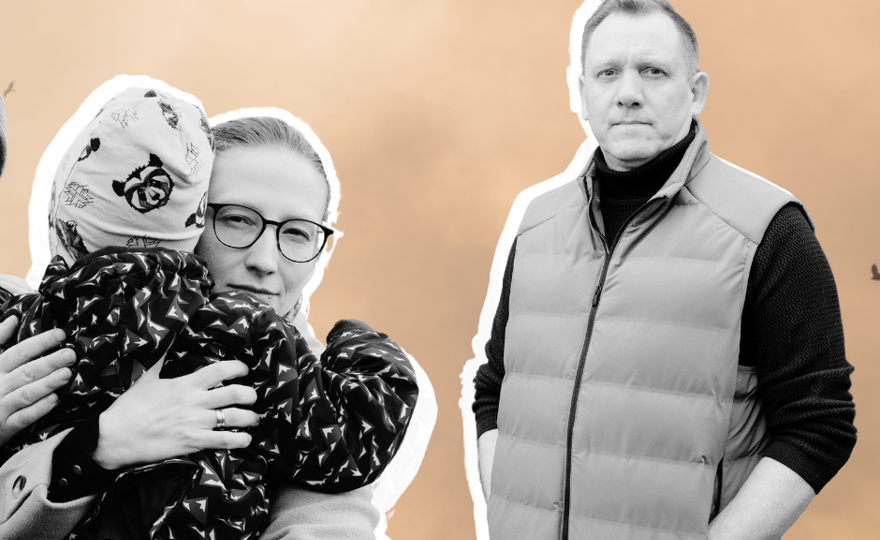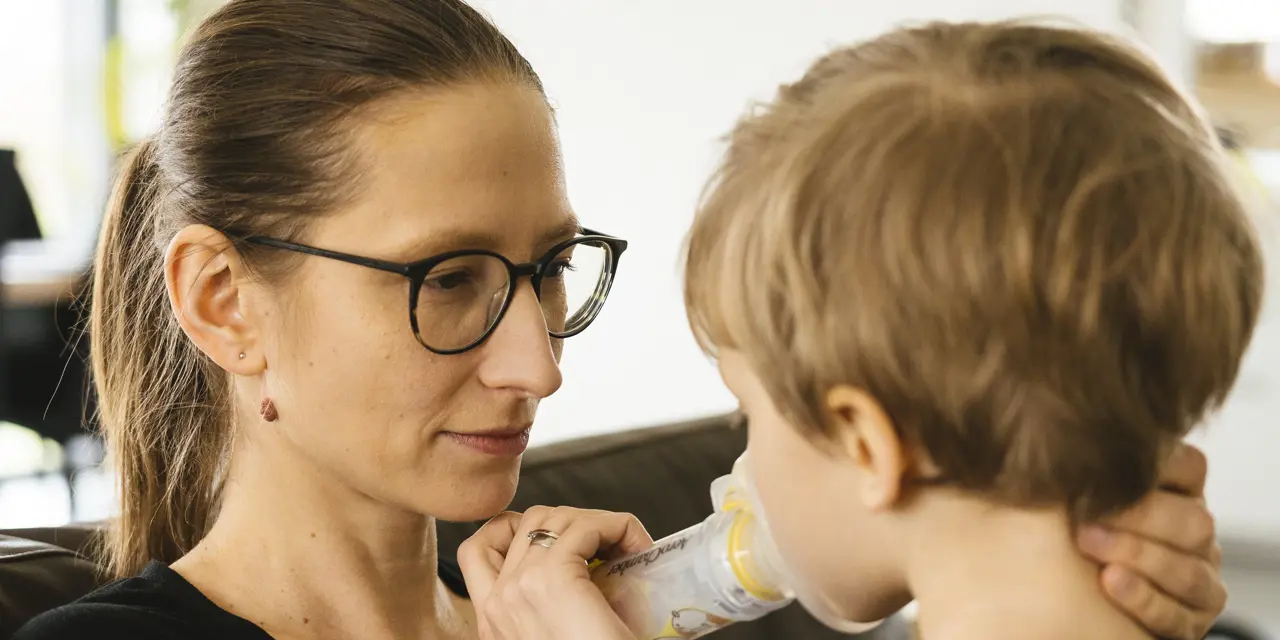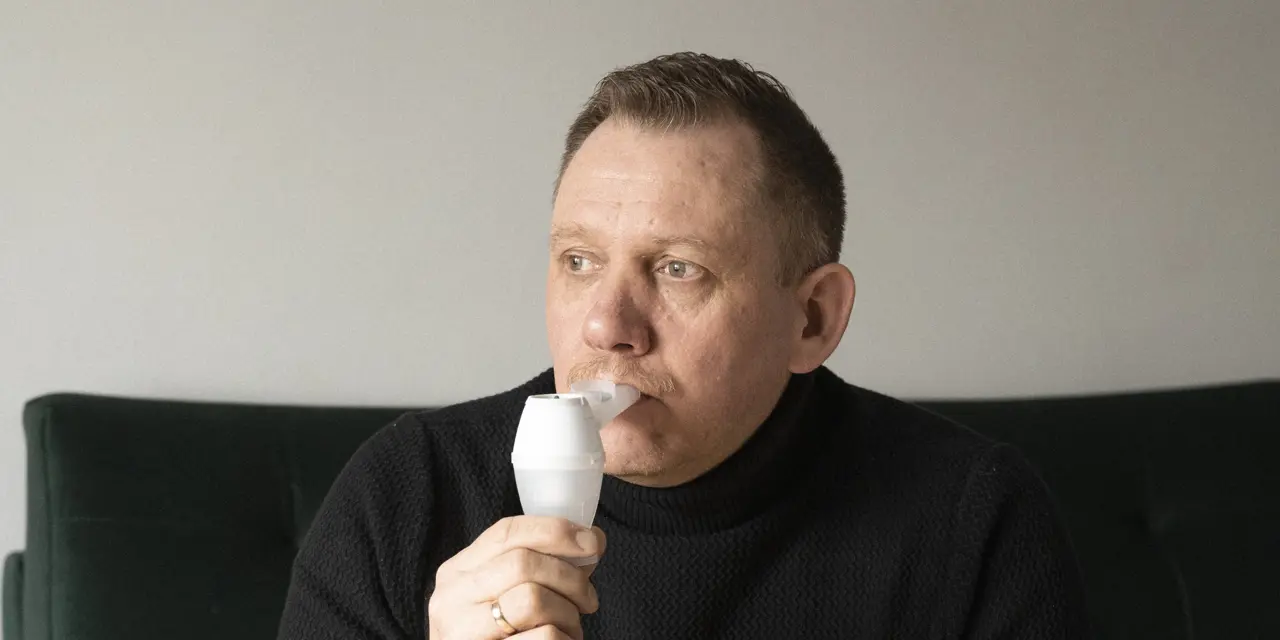ClientEarth Communications
26th November 2024


We're representing two Polish citizens who suffer from asthma, as they are taking their government to court over its failure to tackle air pollution. They are alleging that the Polish State’s failure to tackle smog has worsened their health conditions, violating their fundamental rights, especially the right to health.
These are two separate cases, seeking compensation from the State for the harm caused by air pollution. They are being brought by the family of a five-year-old boy from central Poland, and Andrzej, an adult plaintiff from the Silesia region, and come at a time when air pollution is increasingly recognized as a public health emergency across Europe.
The plaintiffs in these cases include an individual from Rybnik in Silesia region, a city once ranked among Europe’s most polluted, and a five-year-old boy from near the city of Toruń in central Poland. Both suffer from asthma and related respiratory illnesses that have been exacerbated by exposure to dangerous levels of air pollution.
One plaintiff, Andrzej said "Every winter is a nightmare. Without medication, I can’t breathe. Smog isn’t some distant issue—it’s an invisible poison that traps me inside my home for weeks at a time."
The boy’s mother, Urszula, highlighted the toll this is taking on her son: "We have to be careful about when he goes outside. A simple walk can worsen his asthma. Clean and healthy air isn’t a luxury; it’s a necessity for his survival and well-being."
According to the Air Quality Life Index, poor air quality reduces life expectancy in Poland by up to 2 years in highly polluted regions such as Rybnik, compared to WHO standards. In Toruń, the figure is 10 months.
As a result of these cases, the two plaintiffs are hoping for the following:
1. Protection of their fundamental rights, including the right to health, to live in a clean and healthy environment and to breathe air that is not harmful to their health. The right to live in a clean environment, recognized by the UN as a human right, should also be respected in Poland.
2. Financial compensation for health damage caused by the deterioration of health.
3. Financial compensation for medical costs and expenses related to illnesses caused by air pollution.
In addition, an important aim of the cases is to draw attention to the state's obligations in the fight for clean air, so that air quality meets legal requirements. With this case, we want to highlight the responsibility of the state for the lack of effective action to combat smog and the health consequences of inaction.
We hope that the ruling will be not only a legal but also a financial incentive to speed up the fight against air pollution.

Poland has some of the worst air pollution in the EU. Despite the government’s efforts like the 'Clean Air' programme, financing the exchange of old coal and wood stoves and boilers, progress has been too slow, leaving many still dependent on outdated, coal-burning heating systems and uninsulated houses. The country regularly has been breaching EU legally binding standards, posing serious health risks.
Air pollution’s effects aren’t limited to Poland. Many areas across Europe—from London to Lombardy—face similar challenges, with lives disrupted by illnesses linked to toxic air. Studies show that air pollution exacerbates asthma, heart disease, and even neurological disorders, disproportionately affecting children and vulnerable groups.
Pulmonologist Dr. habil. Tadeusz M. Zielonka, professor at the Medical University of Warsaw, warns: "Smog can damage virtually every organ in the body. Toxic particles harm not only the lungs and respiratory tract but also enter the bloodstream, potentially affecting the heart, brain, kidneys, liver, pancreas, endocrine glands, and more. They are particularly dangerous for children, as they can impair development and lead to lifelong health issues. Air pollution is a significant cause of adult deaths, contributing to heart attacks, strokes, and cancers. Even low concentrations of air pollution are harmful to health. We can no longer ignore the devastating impact of air pollution on the health of Polish men and women—we must act to stop it."
The quality of air in Poland is still poor. It does not meet the strict standards recommended by the WHO in 2021, and worse still, in large parts of our country, the standards specified in EU and our national legislation are not even being met. This violates our fundamental rights, including the right to life and health.
This lawsuit isn’t the first of its kind in Europe, but it’s part of a growing movement to hold governments accountable for failing to protect citizens from the harmful effects of air pollution. Similar cases in Germany, Italy and the UK have forced authorities to strengthen policies and enforcement measures.
"We’re seeing more and more people demand action from their governments, clean and healthy air isn’t optional. It’s a right, and when governments fail to uphold it, people have no choice but to take a stand." Agnieszka Warso-Buchanan.

Air pollution is a global challenge affecting communities across the world, from urban centers to rural areas. Systemic solutions are urgently needed, tailored to the unique circumstances of each region.
These solutions include providing financial support to help low-income households transition to cleaner heating technologies, enforcing stricter emissions standards for industries and vehicles, and prioritizing investments in renewable energy sources. While policy advancements, such as updated air quality standards (AAQD) in Europe and other regions represent progress, experts caution that many current measures still fall short of achieving the air quality levels recommended by the World Health Organization (WHO). Addressing air pollution requires a coordinated global effort, with locally adapted strategies to protect public health and the environment.